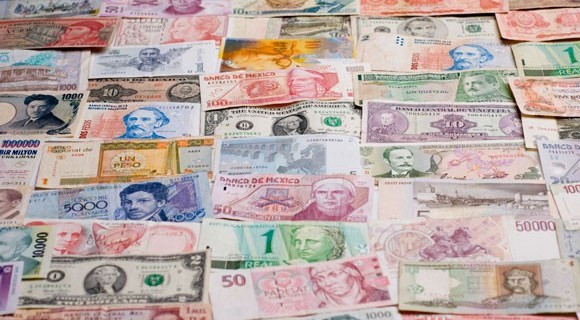Emerging currencies fell

Emerging market currencies fell as a sharp fall on Wall Street sent panicked investors into the U.S. dollar, with simmering Sino-U.S. tensions and concerns over an economic recovery adding to the mix.
Amid concerns that a recovery in oil demand could weaken as coronavirus infections flare up around the world, crude prices tanked, further pressuring petro-currencies such as the Mexican and Colombian pesos, which fell about 0.7% each.
In a move that could threaten its investment rating, Mexico late on Monday raised a nonbinding limit for gross debt to 70% of GDP, almost 20 percentage points above last year’s level, for
the remaining four years of the term of its fiscally conservative president.
Meanwhile, the Mexican government’s 2021 spending blueprint will likely forecast revenue similar to this year’s level, or 6.1 trillion pesos ($282 billion), a senior lawmaker said on Monday.
Mexican stocks led losses among their peers for the day, while other Latin American indexes tracked a technology-led rout on Wall Street.
The MSCI’s index of Latam stocks dropped more than 2%.
The dollar hit a three-week high as losses in Wall Street brewed risk aversion.
Worries about a tough economic rebound from the coronavirus pandemic and simmering U.S.-China tensions after President Donald Trump again raised the idea of decoupling the U.S. and Chinese economies also sent investors to the safety of the greenback.
“Risk appetite remains weak as U.S.-China geopolitical tensions flared up again overnight. With the U.S. election only weeks away, we expect more of this to come,” said Ned Rumpeltin, European head of FX strategy at TD Securities.
“Correlations between risky assets and the dollar have started to rise sharply again. In line with this, we are seeing a further bout of dollar strength against most G10 and major EM currencies.”
The Argentine peso slipped to new lows, but global ratings agency S&P upgraded Argentina’s long-term sovereign credit rating on Monday, pulling it out of default territory after the government successfully restructured over $100 billion in sovereign debt.
Coming back from a long weekend, Brazil’s real fell 1%, while Chile’s peso rose slightly.
Elsewhere, South Africa’s rand fell as much as 1.5% after the recession-hit economy’s second quarter GDP fell more than expected – contracting by a record 51%, as a strict coronavirus-induced lockdown stalled economic activity
Source: Reuters



























